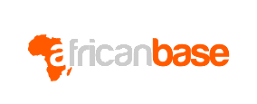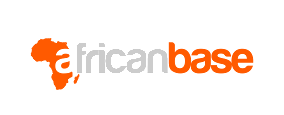Learning a new language is an exciting and rewarding journey that opens doors to new cultures, opportunities, and connections.
Whether you're preparing for travel, expanding your career prospects, or simply embracing the joy of learning, becoming a fluent speaker in a new language can be achieved efficiently with the right approach.
In this comprehensive guide, we'll explore strategies and techniques to help you transition from a novice to an expert speaker in your target language quickly and effectively.
Setting Realistic Goals
One of the keys to language learning success is setting realistic and achievable goals.
Begin by defining your objectives, whether it's reaching conversational fluency, mastering specific vocabulary for professional purposes, or becoming proficient in all aspects of the language.
Break down your goals into manageable milestones, such as learning a certain number of new words each week or completing a chapter in your language textbook within a specified timeframe.
Immersion Through Media Consumption
Immerse yourself in the language by consuming media in your target language regularly.
This includes watching movies, TV shows, and documentaries, listening to music and podcasts, and reading books, articles, and news in the language.
Choose content that aligns with your interests and preferences to make the learning process enjoyable.
Pay attention to pronunciation, vocabulary usage, and sentence structures while immersing yourself in authentic language contexts.
Utilize Language Learning Apps and Resources
Take advantage of language learning apps and online resources designed to facilitate language acquisition.
Platforms like Duolingo, Babbel, Rosetta Stone, and Memrise offer interactive lessons, quizzes, and exercises to improve your vocabulary, grammar, and speaking skills.
Additionally, explore language exchange programs where you can connect with native speakers for conversation practice and cultural exchange.
Websites like Tandem, HelloTalk, and ConversationExchange provide opportunities to engage in language exchanges with speakers of your target language.
Practice Speaking Regularly
Consistent practice is crucial for developing fluency in a new language.
Schedule regular speaking practice sessions where you can actively engage in conversations, either with language exchange partners, tutors, or fellow learners.
Focus on using the language in real-life situations, such as ordering food at a restaurant, making phone calls, or participating in group discussions.
Embrace opportunities to practice speaking without fear of making mistakes, as errors are a natural part of the learning process.
Learn Grammar and Vocabulary in Context
Rather than memorizing grammar rules and vocabulary lists in isolation, learn them in context to enhance retention and comprehension.
Study sentences and phrases that are relevant to everyday situations and conversations.
Use flashcards or mnemonic devices to reinforce vocabulary memorization.
Incorporate storytelling and role-playing exercises to practice using new words and grammatical structures in meaningful contexts.
Seek Feedback and Correction
Seek feedback and correction from native speakers, language tutors, or language exchange partners to improve your speaking skills.
Ask for constructive criticism on pronunciation, grammar usage, and sentence construction.
Use feedback to identify areas for improvement and tailor your learning approach accordingly.
Embrace feedback as a valuable tool for refining your language skills and achieving greater fluency.
Cultivate a Language-Learning Mindset
Developing a positive and resilient mindset is essential for language learning success. Stay motivated and committed to your language learning goals, even when faced with challenges or setbacks.
Celebrate your progress and achievements along the way, no matter how small.
Surround yourself with supportive communities of language learners, where you can share experiences, seek advice, and stay inspired.
Conclusion
Becoming a fluent speaker in a new language is an achievable goal with dedication, persistence, and effective learning strategies.
By setting realistic goals, immersing yourself in the language, utilizing language learning apps and resources, practicing speaking regularly, learning in context, seeking feedback, and cultivating a positive mindset, you can accelerate your journey from novice to expert in your target language.
Embrace the excitement of learning, embrace the challenges, and embrace the opportunities that language fluency brings into your life. Happy learning!


.jpeg)
.jpeg)





0 Comments
We Cherish Your Comments.
Thank You.